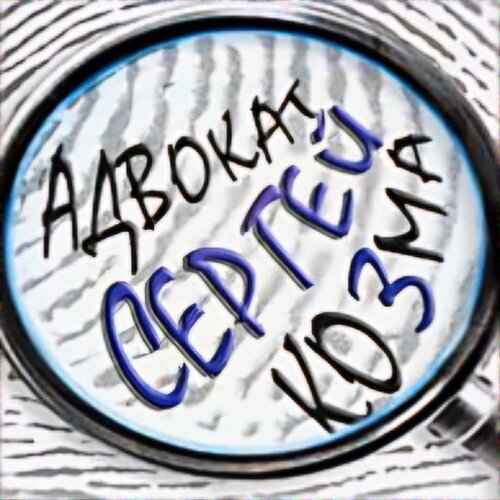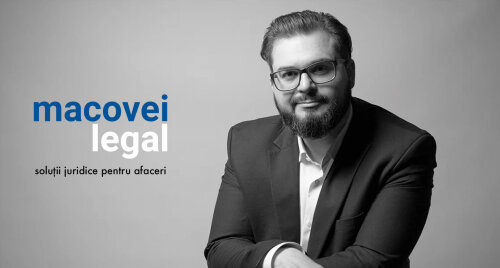Best International Lawyers in Republic of Moldova
Share your needs with us, get contacted by law firms.
Free. Takes 2 min.
Or refine your search by selecting a city:
List of the best lawyers in Republic of Moldova
About International Law in Republic of Moldova
International law in the Republic of Moldova involves treaties, agreements, and protocols that Moldova is a party to, impacting both individual and business activities. This area of law governs relations between Moldova and other countries, as well as international organizations. Due to its strategic location in Eastern Europe, Moldova engages in numerous international agreements addressing issues like trade, human rights, migration, and environmental protection. The nation is a member of the United Nations, the Council of Europe, and other international bodies, which influences its legal framework and obligations under international law.
Why You May Need a Lawyer
Engaging a lawyer specialized in international law can be crucial in many situations, such as:
- Navigating the complexities of cross-border trade and investment regulations.
- Understanding your rights and obligations under international treaties.
- Dealing with international child custody or family law issues.
- Seeking protection of foreign investments or pursuing international arbitration.
- Addressing human rights violations or seeking asylum.
- Managing immigration and residency requirements for individuals and businesses.
Legal help can clarify these issues, ensure compliance, and protect your interests.
Local Laws Overview
In the Republic of Moldova, the legal system is primarily based on civil law tradition. Key aspects of local laws relevant to international matters include:
- Trade and Customs Regulations: Stringent laws governing import-export activities, aligned with international trade organizations.
- Foreign Investment Laws: Protecting foreign investor rights through bilateral treaties and providing arbitration options.
- Human Rights Legislation: Incorporating European Human Rights standards into national laws for both residents and visitors.
- Environmental Laws: Abiding by international agreements on climate change and sustainable practices.
- Immigration Laws: Rules on visa, residency, and work permits reflect international conventions and agreements.
Frequently Asked Questions
How does Moldova handle international trade agreements?
Moldova engages in numerous bilateral and multilateral trade agreements, aligning with European Union standards and generally following World Trade Organization rules. These agreements facilitate trade and investment flows with other countries.
What are my rights under international human rights treaties in Moldova?
Moldova is a party to various international human rights conventions, including those from the UN and the Council of Europe, which guarantees the protection of civil and political rights.
How can I resolve a cross-border business dispute?
Cross-border disputes may be resolved through international arbitration mechanisms as allowed under Moldovan law or through litigation, where international treaties define jurisdictional reach.
Are there specific immigration regulations for expatriates in Moldova?
Yes, Moldova requires visas for many foreign nationals, with specific conditions for work and residency permits, in accordance with EU and other international standards.
What legal protections exist for foreign investors?
Foreign investments in Moldova are protected under a variety of bilateral treaties to ensure fair treatment, investment protection, and the ability to repatriate profits.
How does Moldova's legal system incorporate EU laws?
While not an EU member, Moldova is part of the EU Association Agreement, progressively aligning its legal standards with European regulations, particularly in trade and human rights.
Who enforces international environmental commitments in Moldova?
The Ministry of Environment is responsible for ensuring compliance with Moldova's international environmental obligations, coordinating with various stakeholders.
Can international law influence local Moldovan court decisions?
Yes, international law can influence local court decisions, especially in cases involving human rights issues, with many international treaties having a direct effect on national jurisprudence.
What steps should I take for a child custody case involving another country?
Contact a legal professional familiar with both local and international family law, as Moldova is party to the Hague Convention on International Child Abduction, offering mechanisms for resolving such cases.
Are there sanctions or trade embargoes impacting Moldova?
Moldova must adhere to any EU or international sanctions, which could affect trade policies and diplomatic relations with certain countries.
Additional Resources
For further information, consider reaching out to the following resources:
- The Ministry of Foreign Affairs and European Integration
- Moldova's Investment Agency for business-related inquiries
- International organizations like the United Nations or Council of Europe offices in Moldova
- Local chapters of international NGOs focusing on human rights and environmental issues
Next Steps
If you require legal assistance in international matters, it's advisable to:
- Gather all relevant documentation related to your issue.
- Consult with a legal professional specializing in international law who has in-depth knowledge of Moldova's legal environment.
- Consider meeting with government bodies or international organizations to better understand the legal framework affecting your case.
- Stay informed about updates in international law that might affect your rights or obligations.
Lawzana helps you find the best lawyers and law firms in Republic of Moldova through a curated and pre-screened list of qualified legal professionals. Our platform offers rankings and detailed profiles of attorneys and law firms, allowing you to compare based on practice areas, including International, experience, and client feedback.
Each profile includes a description of the firm's areas of practice, client reviews, team members and partners, year of establishment, spoken languages, office locations, contact information, social media presence, and any published articles or resources. Most firms on our platform speak English and are experienced in both local and international legal matters.
Get a quote from top-rated law firms in Republic of Moldova — quickly, securely, and without unnecessary hassle.
Disclaimer:
The information provided on this page is for general informational purposes only and does not constitute legal advice. While we strive to ensure the accuracy and relevance of the content, legal information may change over time, and interpretations of the law can vary. You should always consult with a qualified legal professional for advice specific to your situation.
We disclaim all liability for actions taken or not taken based on the content of this page. If you believe any information is incorrect or outdated, please contact us, and we will review and update it where appropriate.
Browse international law firms by city in Republic of Moldova
Refine your search by selecting a city.















